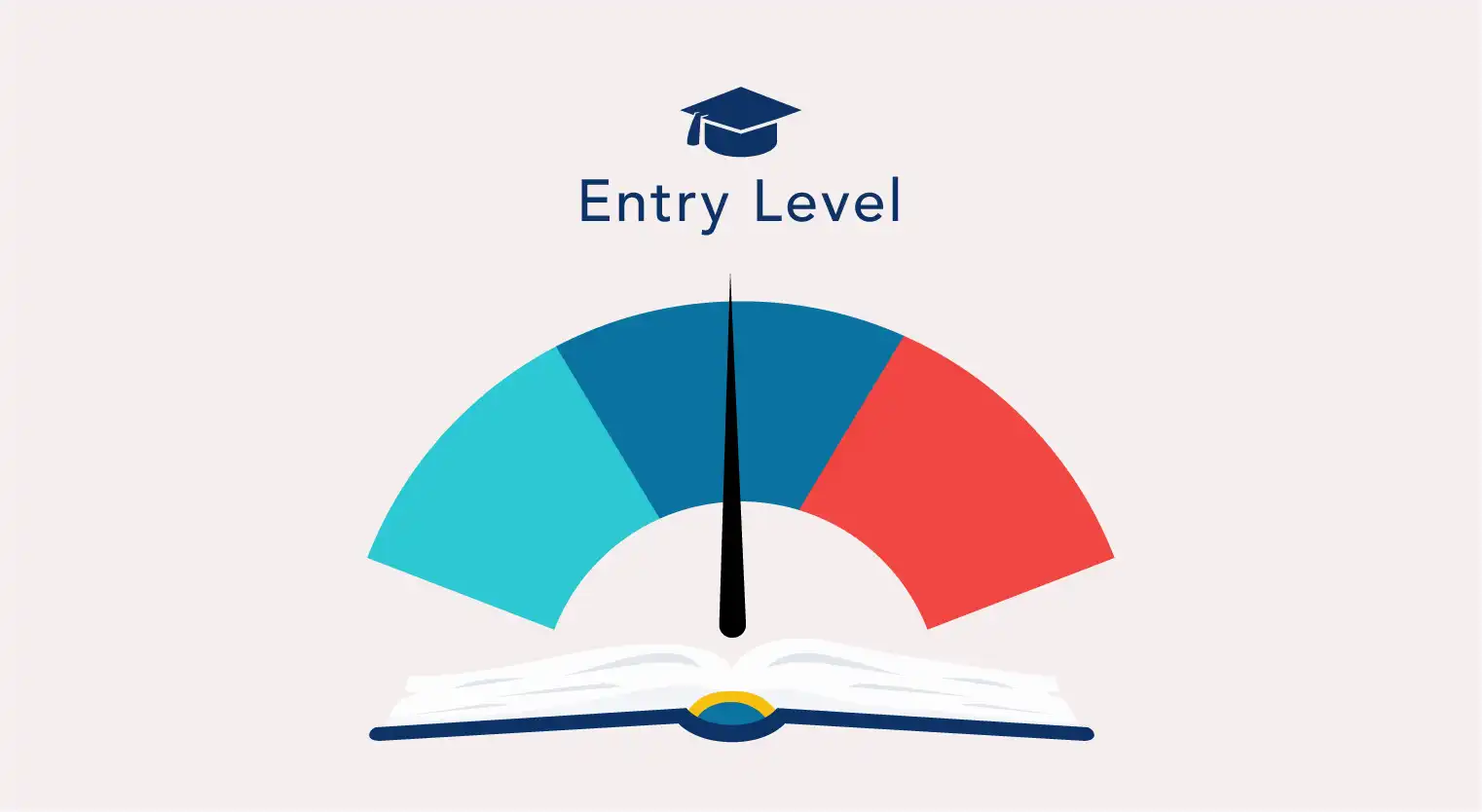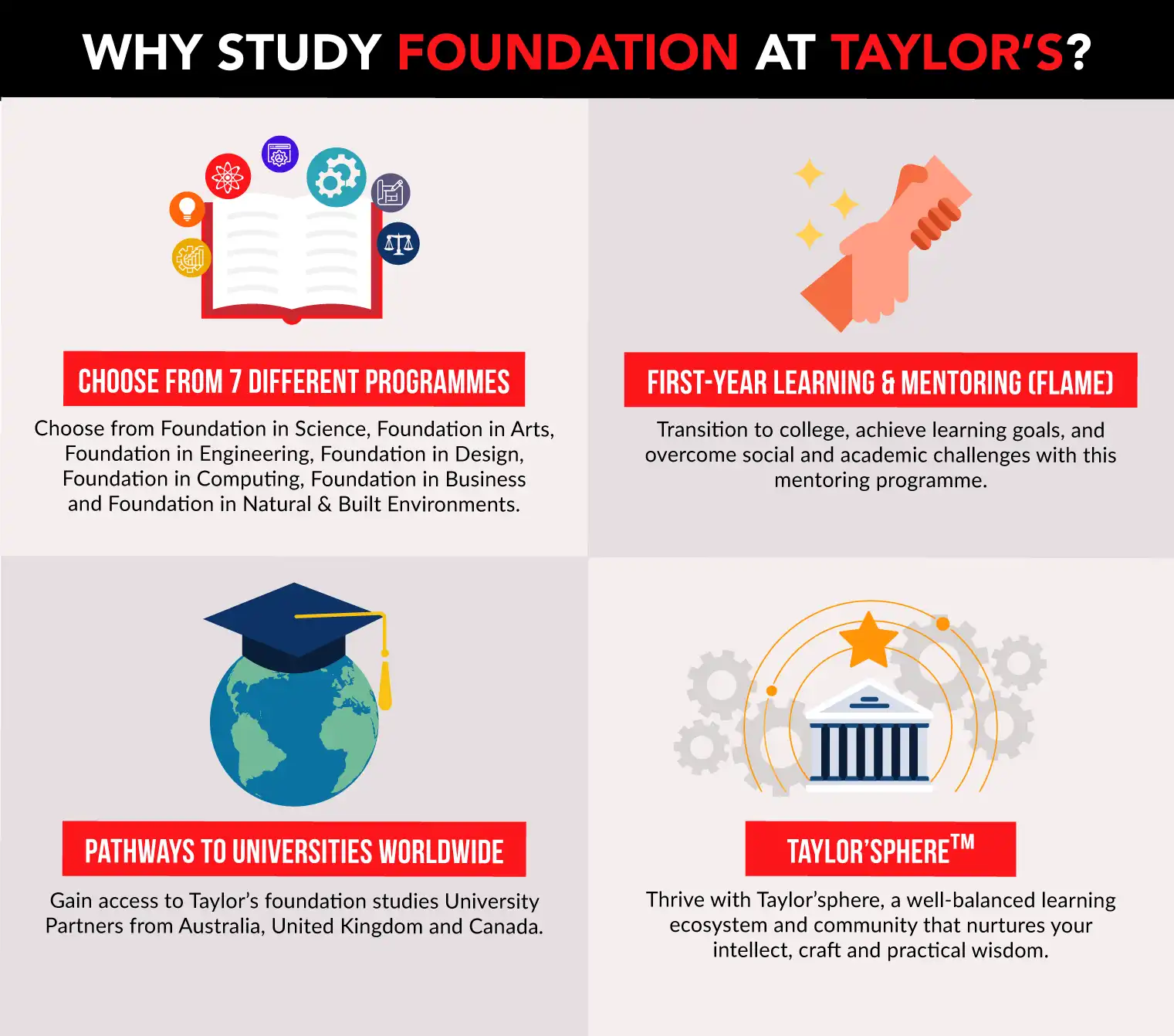Studying Foundation? Top 7 Things You May Want To Think About
Discover the hidden factors that could make or break your academic journey.
Updated 19 Aug 2024


Foundation is one of the most popular pre-university programmes here in Malaysia and it's not hard to see why. It’s fast, affordable and can lead you to your degree of choice while keeping your options open.
But is it really for you? And how do you decide which foundation is the right choice?
Before you make a decision, do yourself a favour and ask yourself these important questions.
#1. What degree do you want to study?

Knowing what degree you want to study can help you decide which foundation is the best choice.
This is because there are many different types of foundations, each offering varying benefits. Some provide a more focused preview of your chosen degree, while others offer greater versatility.
For instance, a Foundation in Science can lead to many science, business and humanities degrees, which keeps your options wide open. However, if you’re set on studying computer science or exploring the world of artificial intelligence (AI), it would make more sense to choose a Foundation in Computing since you’ll get to hone in on computing subjects.
Did You Know?
Taylor’s offers 7 foundation programmes which are Foundation in Science, Foundation in Arts, Foundation in Engineering, Foundation in Design, Foundation in Computing, Foundation in Business and Foundation in Natural & Built Environments. This means that there’s a programme for you no matter your interest! Explore more here.
#2. What modules will you be studying?

When considering a foundation programme, it’s important to recognise that not all programmes are created equal. Even when you are referring to the same field of study, say a Foundation in Science, the modules can vary from one institution to another.
This is because institutions design their foundations based on the needs of their students, emphasising on certain areas to align better with their university’s degree offerings. For example, an institution with a strong medical school may include more electives related to medical sciences and biology in their Foundation in Science. Meanwhile, another institution might offer programming or advanced mathematics instead, preparing students for degrees in computer science and engineering.
This means that it’s essential to look beyond the general title and examine the specific modules offered as they can impact your academic journey. So, make sure to look into their course outlines, compare the content and understand how the modules align with your intended degree.

#3. Do you meet the minimum entry requirements?

A foundation is a great pre-university programme because it allows you to start your degree earlier by condensing your studies to just one year. This means that it can come with heavy academic expectations and hence, the need for minimum entry requirements.
In general, you will need at least 5Cs at SPM, IGCSE or equivalent to qualify for a foundation programme. For STEM-related foundations such as Foundation in Science and Foundation in Engineering, there is an additional requirement of having at least a credit in two science subjects. And if you plan to pursue degrees like medicine, dentistry or pharmacy, the requirements are higher still as you’ll need 5Bs in mathematics and sciences.
The minimum entry requirements depend on your area of interest. If you are unable to meet these requirements, you can always contact the institution directly to talk about alternative pathways you can explore.
#4. How much does the programme cost?

Another major thing you want to keep in mind is the study cost. With a short programme duration, you will already be paying lesser in tuition fees with a foundation programme.
But there’s more that you can do. For starters, find out if the university is offering any scholarships or financial aid. These can come a long way in helping you fund your studies.
Alternatively, find out if the foundation is eligible for a PTPTN loan. If not, consider financial options such as Bantuan Kewangan Asasi that’s available for asasi programmes at public universities.
Pro Tip:
Taylor’s offers a wide range of scholarships for their foundation programmes. Whether you’re academically gifted or have a talent in sports or music, there’s a scholarship for you. Leave your details below to find out more.
#5. Where are you planning to study your degree?

Unlike standardised pre-university programmes such as Cambridge A Level and Australian Matriculation, foundation programmes differ from one institution to the next. The core of the programme may be similar but its exact curriculum and thus, level of recognition, varies depending on the institution offering it. As a result, some universities may impose higher entry requirements for another institution’s foundation, or in some cases, may not accept it at all.
Therefore, it’s essential to research which degrees you can pursue within the same university after completing their foundation programme. Some institutions also have partnerships with other universities, both locally and internationally, providing you with more options for further study.
Pro Tip:
Worried about not being able to study anywhere else? Under their University Placement Services, Taylor’s has university partners and established articulation pathways that can take you to universities all over the world. Ask us about it here.
#6. Where will the programme be taught?

Institutions may sometimes offer their foundation programme at locations that are different from their main campus. This could be at their college campus or a partner institution.
But why does this matter?
Studying at the main campus may allow you to experience real university life earlier. You’ll be in close proximity to degree students and lecturers, allowing you to easily connect with them and seek out their guidance. The university life may also be livelier with more students and student activities. On the other hand, a separate college campus, which is often a smaller location, might offer a more focused, tailored learning environment.
Each setup has its own advantages and disadvantages. Consider how the location aligns with your preferences and needs, and how it might affect your overall study experience.
Pro Tip:
Want to get that authentic university experience? As a student at Taylor’s College, you will be studying alongside university students from Taylor’s University at their Lakeside Campus. Get started below.
#7. Is the foundation programme recognised by MQA?

Whether you’re considering a Foundation in Science, a Foundation in Arts or any foundation programme for that matter, it is crucial to verify its recognition by the Malaysian Qualifications Agency (MQA).
Firstly, an MQA accreditation acts as a seal of excellence. A study programme can only receive an accreditation if it meets the rigorous quality assurance standards set by the MQA. So, when a programme is MQA-accredited, you can be confident in its credibility and the quality of education it provides.
Additionally, studying an accredited foundation programme can make it easier for you to apply for a degree later on. This is especially true if you’re planning on studying at a different university. By choosing an MQA-recognised foundation programme, you’re making it easier for yourself to progress to an accredited degree.
Did You Know?
All of Taylor’s foundation programmes are recognised by the MQA. Start your journey with Taylor’s here.

















